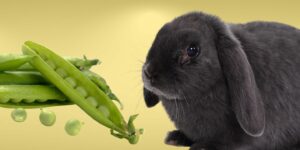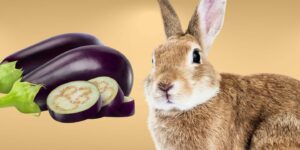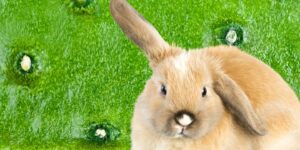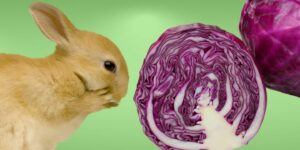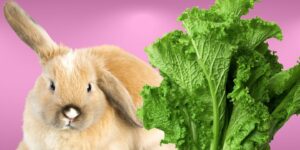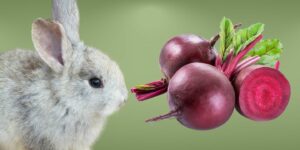The short answer is yes, rabbits can eat iceberg lettuce. However, it should only be given to them in moderation and as an occasional treat, not as a staple part of their diet. A balanced diet is crucial for a rabbit's health and there are myths surrounding the notion that rabbits should eat mainly lettuce. In this article, we will debunk these myths and discuss the potential health issues iceberg lettuce can cause in rabbits, the proper diet for rabbits, and tips for feeding iceberg lettuce safely to your furry friend.
Nutritional Value of Iceberg Lettuce
Iceberg lettuce is not the most nutritious option for rabbits. It is mainly composed of water and has very little in the way of vitamins, minerals, and other nutrients essential for a rabbit's health and well-being. In comparison to other types of lettuce, such as romaine or green leaf lettuce, iceberg is nutritionally inferior, making it not the best choice for rabbits.
Possible Health Issues from Feeding Iceberg Lettuce to Rabbits
Iceberg lettuce can cause digestive problems in rabbits when eaten in large amounts. These issues may include:
Digestive problems
Rabbits have sensitive digestive systems and iceberg lettuce can disrupt the balance of healthy bacteria in a rabbit's gut, leading to digestion problems.
Diarrhea
The high water content in iceberg lettuce can lead to diarrhea in rabbits if consumed in excessive amounts.
Dehydration
Diarrhea can also lead to dehydration in rabbits, which can cause further health problems if not addressed promptly.
Nutrient deficiencies
Since iceberg lettuce is low in nutrients, rabbits that consume too much of it may suffer from nutrient deficiencies that can affect their overall health and well-being.
Proper Diet for Rabbits
The ideal diet for rabbits should include:
The role of hay in a rabbit's diet
Hay should make up the majority of a rabbit's diet as it is essential for maintaining their digestive health, providing the necessary fiber for proper digestion.
Importance of fiber
Fiber is key for a rabbit's digestive health and preventing gastrointestinal stasis, a potentially life-threatening condition where the gut slows down or stops.
The variety of vegetables and greens that rabbits can eat
Rabbits should also be fed a variety of healthy vegetables and greens, such as kale, collard greens, Swiss chard, carrots, parsnips, and beets. These provide necessary vitamins and minerals for overall health.
The role of fruits in a rabbit's diet
Fruits can be given as occasional treats, but they should be given in limited amounts due to their high sugar content.
Tips for Feeding Iceberg Lettuce to Rabbits Safely
If you decide to give your rabbit iceberg lettuce, remember these tips:
Introducing new foods gradually
Introduce iceberg lettuce or any new food gradually into your rabbit's diet to avoid sudden digestive issues.
Monitoring your rabbit's health and behavior
Keep an eye on your rabbit's health, specifically their digestive habits and behaviors, when introducing iceberg lettuce or any new food to their diet.
Alternatives to iceberg lettuce
Consider providing your rabbit with more nutrient-dense options like romaine lettuce, kale or spinach instead of iceberg lettuce.
Adequate water supply
Ensure your rabbit has access to a clean and fresh water supply at all times to help maintain proper hydration, especially if they consume iceberg lettuce.
Other Foods to Avoid Feeding Rabbits
Some foods are toxic or unhealthy for rabbits, including:
- Chocolate
- Avocado
- Rhubarb
- Onions
- Iceberg lettuce in excess
Overfeeding sugary or high-calorie foods can lead to obesity and other health issues in rabbits.
Frequently Asked Questions
Can baby rabbits eat iceberg lettuce?
It is not recommended to feed iceberg lettuce to baby rabbits as their digestive systems are even more sensitive than those of adults and iceberg lettuce has limited nutritional value.
Can pregnant rabbits eat iceberg lettuce?
Pregnant rabbits should be provided with a balanced diet high in hay, vegetables, and essential nutrients. Occasional iceberg lettuce can be okay, but it should not form a significant part of their diet.
Can rabbits eat romaine lettuce?
Yes, rabbits can eat romaine lettuce. It is a healthier choice compared to iceberg lettuce as it offers more vitamins and minerals to support a rabbit's health.
Conclusion
In conclusion, while rabbits can technically eat iceberg lettuce, it is not the best option for their health. It is low in nutrients and can cause digestive problems if eaten in large amounts. A diet consisting mainly of hay and a small amount of fresh vegetables and fruits is a much better choice for rabbits. If you do decide to give your rabbit iceberg lettuce, do so in moderation and as an occasional treat, not as a staple part of their diet. Responsible pet ownership and proper rabbit care are essential for keeping your furry friend happy and healthy.



